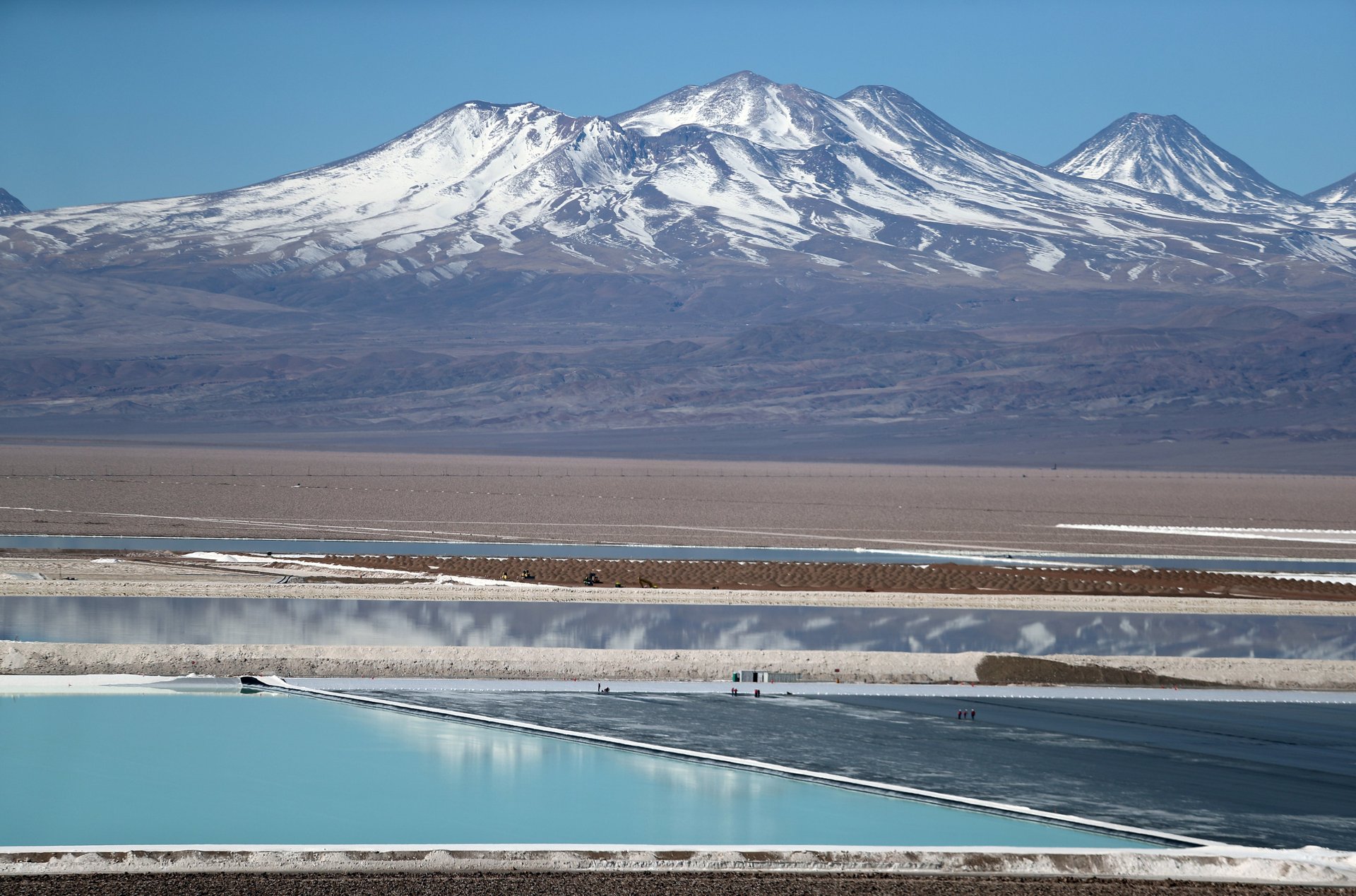The world needs lithium more than ever, and Latin America knows it
Latin American countries rich in the mineral are not giving it up so easily

German chancellor Olaf Scholz flew to Latin America this week looking for one thing: lithium.
Meeting with the leaders of Argentina, Chile, and Brazil — home to the so-called lithium triangle — the leader of Europe’s largest economy attempted to negotiate a foothold in some of the world’s largest reserves of the sought-after metal, which he considers essential for his country’s clean energy revolution.
China has recently pursued a similar strategy of influence in the region, spending aggressively on lithium contracts in those same three countries in order to keep up with surging demand in its own manufacturing sector.
Chinese president Xi Jinping addressed the Summit of the Community of Latin American and Caribbean States last month to stress the importance of China’s relationships in the region and pledged continued support for industrial partnerships.
Overtures like those made by Xi and Scholz are just the latest in a centuries-long history of foreign governments and corporations looking to score in poor countries rich in natural resources, often filled with lax regulations and cheap labor.
But these days leaders of the world’s most powerful countries, and leaders of the world’s most powerful corporations, are running up against a new resistance in Latin America, which is keenly aware of the value of its lithium reserves.
So, now, a number of Latin American governments are driving a much harder bargain.
Chile’s big plans for mining companies
During his visit to Santiago, the German leader made a telling nod to the Chilean government’s priorities in the mining sector.
Citing president Gabriel Boric’s calls for increased environmental and labor regulation, Scholz noted Germany’s own high standards when it comes to labor, suggesting that his country would make an ideal partner in any new lithium mining contracts.
The point will surely resonate with the Chilean president. Boric has made it a top priority to reign in mining companies, both foreign and domestic, during his first year in office.
In his most aggressive move to date, the left-wing president rejected a proposed $2.5 billion iron-ore project in the northern Chile, citing its proximity to a wildlife preserve. Dubbed the Dominga Project, halting the proposed mine was a pillar of Boric’s campaign to prioritize environmental conservation over economic stimulation.
“We don’t want projects that destroy our country, destroy communities,” Boric said during his presidential campaign. “No to Dominga!”
This is a major turnaround from the previous Chilean president, Sebastian Piñera, who championed the creation of the Dominga Project mine and loosened mining regulations as part of his pro-business platform.
Boric, meanwhile, wants to do more than just pass new mining regulations. Citing the increased global demand for lithium, he has repeatedly called for the creation of a state-run lithium company that would invite foreign companies as minority partners.
His government sees state control of Chile’s vast lithium reserves as a way to force radical reforms in the industry and democratize mineral wealth among Chileans, and seems none too concerned about how potential foreign investors might react to that.
Bolivia wants to make the batteries too
East of Chile’s mineral-rich Atacama desert, Bolivia’s left-wing president, Luis Arce, also has big plans for his country’s lithium reserves.
“This precious mineral has been sleeping for too long,” he said after reaching a billion-dollar deal last week with Contemporary Amperex Technology — a major Chinese battery producer — to jointly begin the process of developing a domestic battery manufacturing sector. “Today begins the era of industrialization of Bolivian lithium.”
This is no ordinary foreign investment. For the first time, Bolivia is demanding to be involved in both ends of the industrial process: Mining the lithium and producing the batteries it fuels. Manufacturing products from raw materials has traditionally been the missing step that prevents economic development in commodities-rich countries.
Bolivia has the most extensive lithium reserves in the world, holding about a quarter of the world’s known supply (or 39 million tons) in the country’s sprawling salt flats. Yet, Bolivia is the poorest country in South America by every measure, with roughly 40% of its people living in poverty.
Bolivia’s lithium processing capability now remains small. It produced a paltry 543 tons in 2021, compared to Australia, the world’s largest lithium exporter, which boasts annual production of about 550,000 tons.
Essential in the production of batteries for smartphones, computers, and the rapidly growing industry of electric vehicles, Bolivia has the chance to cash in on the lithium boom and radically change its economy.
This is exactly why Acre — an avowed socialist famous for nationalizing the hydro-carbon industry as minister of finance — is looking to control the entire production process and keep the potential profits of lithium exports within Bolivia.
Related stories:
🇵🇪 Peru’s political crisis cuts off access to 2% of the world’s much-needed copper supply
🪙 Brazil and Argentina are laying the groundwork for a Latin American currency to rival the US dollar
